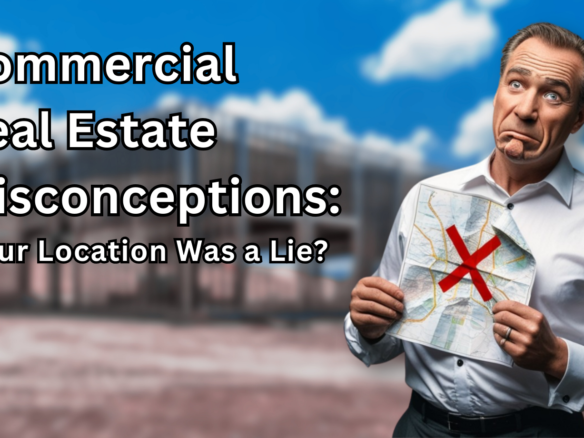Commercial real estate offers many tools for maximizing one’s return on investment (ROI). Leverage is one of the most effective ways to limit (or omit) the amount of personal money you put into a deal and see the highest return possible.
To understand leverage in commercial real estate, you must completely understand what it is and the main factors determining whether it is positive or negative. Unfortunately, if improperly prepared, leverage can destroy a property’s income-producing capabilities and leave the owner’s income in the red.
Read More: Good planning will help you make conclusive business relocation
Leverage is magic in commercial real estate.
Using leverage to your advantage can mean more effective investments every time. It can either allow you to do fewer deals per year or greatly increase your wealth in a short amount of time.
Leverage is directly related to the amount of money borrowed on a deal, compared to an income-producing property’s current and potential value. Leverage occurs when money is borrowed at a certain interest rate less than the rate of return on a commercial property. Let’s look at this transaction in detail to see how the investor can limit the amount of personal capital put into a deal versus the money returned by the property.
The Importance of Minimal Personal Investment
There are many different styles and purposes of purchasing property, and none are wrong or better than others. The investor and his or her intentions reflect this. However, for the most part, the least possible amount of personal money that can be invested in a deal means larger returns.
Why? Because when you borrow 50,00,000 on a property at a 6% interest rate amortized over 25 years, you are paying the principal amount every month, which is covered by the property’s income. By paying to borrow the money, you can leave your money in the bank (or put it to some other asset-producing use), have the property pay for both the loan and interest, and return a huge sum of cash, which only adds to your wealth.
If you had used your own money, that amount would have to be subtracted from the total amount earned, as opposed to only a fraction of the money borrowed.
The Power of Positive
Positive leverage is when the interest rate of the money you are paying to borrow is less than the investment’s return percentage. A great amount of cash can be found in this difference. The higher the performance of the property, the more money is to be made.
Read More: Become A Commercial Real Estate Negotiation Expert
The Benefits of Long-Term, Fixed-Rate Loans
For this to happen, leverage must be accompanied by a loan with long payment terms and a fixed interest rate that is amortized in equal payments over the life of the loan. Indeed, these terms are not always available. However, many commercial, public, and private lenders are willing to negotiate terms to see a sound return.
When a loan has a long life, a fixed rate, and equal monthly payments, the principal reduction increases after every payment, while at the same time, the interest amount is decreased. This occurs when the same amount is paid every month, causing the principal amount to be paid less, so, in turn, the total amount of interest is decreased. You continue to pay the principal amount at a lower interest rate every month.
Maximum Returns
When your property is leveraged properly, you have plenty of time to pay off the loan, and cash is generated by the property to pay off the loan as well as give you maximized returns on investment. Your money does not even have to be involved in this process because the income covers the borrowed money, the interest, and your return as well.
It is amazing to see how this simple math can mean such huge results for commercial real estate investors.
The Dangers of Over-Leveraging
Leverage can be dangerous, however, especially if the property does not perform as intended and does not produce the cash necessary to cover the loan, interest, and your return on investment. When the investor owes more than the property is worth, the property is considered over-leveraged, which is a dangerous situation for an investor. Money can be lost, and personal money may have to be used to keep the property performing. The investor may be unable to pay the interest and principal promptly, causing the property to go into foreclosure.
Leverage must be taken seriously, and the mortgage market must be carefully watched, especially if the loan terms are adjustable rather than fixed.
For More updates, Join Our WhatsApp community. Click Here
Conclusion
Use leverage to your advantage to yield the most money from your investment without even investing your own money. Do be aware that leverage can go in a negative direction. Be sure to have accurate and supportive income forecasts so that you know the loan will be covered, as well as the return you expect to gain from the property.



Join The Discussion